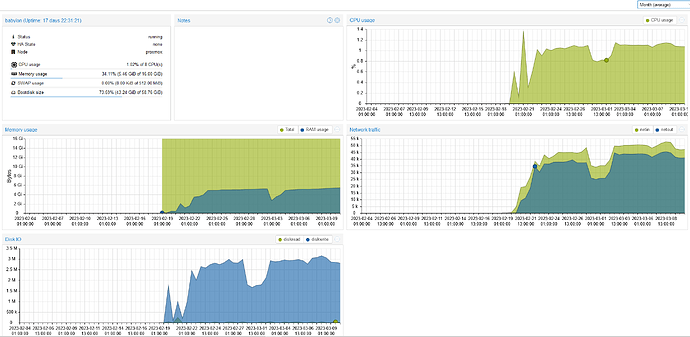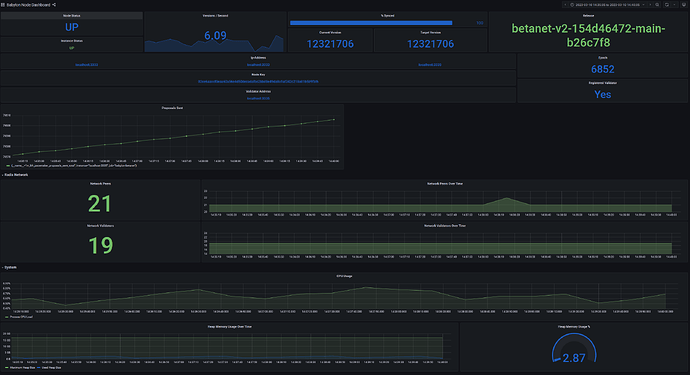Hello,
I’ve been selected, alongside 14~ other node runners, to test the new Radix node for Babylon.
Just like before, RDX Works supports both a Docker installation and a native one, but at the moment they’re focusing on Docker.
Even if you haven’t been selected to test the new node, the docs are publicly available and everyone can start a Babylon node: Getting Started
I am going to share my experience and thoughts in this thread, both for other users and also for RDX Works staff.
Just like in Olympia, I’ve never been a fan of Docker due to its lack of performance compared to running apps natively, so I decided to try a native installation using systemD, even though the docs were a bit lacking.
Thanks to the help of many kind node runners such as @r3animation, @Faraz, @stakesafebart and many others I didn’t have much trouble in getting my node up and running.
It’s now been almost a month and I am ready to share some basic impressions:
- As of 2023-03-12T23:00:00Z, I am connected to 20 peers. This makes sense since some node runners such as @Faraz are running both systemD and Docker installations, and because there are other node runners that haven’t been selected for the testing that decided to give it a try as well.
- Resource usage is hard to measure since as of right now the network is pretty much idle, but I will share my Proxmox summary to give an idea:
I started validating on 2023-02-20T23:00:00Z, once I got enough stake delegated by the team. RAM usage has been slowly creeping up since then, and that has been noticed by other node runners as well, such as @LeoMagal:
memory is ramping up. Started as 1.5G a few days ago now is at 3G. Still lots of margin to grow, but not stable like Olympia. Running smooth, just for you guys to know
and @Faraz:
Memory usage has been creeping up a bit, at around 7GB for both docker and systemd but the demand is still pretty low on Betanet. … CPU usage is very low much like mainnet.
Both network and disk I/O are pretty low because like I said there’s barely any activity on the betanet.
The ledger data (RADIXDB) is 29 GB as of right now.
- Epochs are of 5 minutes.
- I haven’t tested this personally, but quoting @Faraz, Docker startup times still seem very slow compared to native:
[Docker] takes a good 25 seconds before I can call the API on the node on docker. Systemd is up in sub 5 seconds.
- Regarding failover, I haven’t tested it myself yet but apparently it’s just the case of sending a simple transaction to the network to switch the validating node, change that will take effect in the next epoch
- Even though there’s pretty much zero documentation for Windows, we also have a node running on a different OS than Linux, thanks to @projectShift!
- The Grafana dashboard is still very much a WIP, with the very useful metric of missed proposals missing (alongside others), but here’s what I have so far:
I shared a snapshot of my Grafana dashboard so everyone can check it out, go back in time and play with all the cool metrics we have so far: Babylon Node Dashboard
There are other interesting metrics to monitor such as proposal rate (useful to notice any slowdowns in the network, maybe due to a node offline) and network received/sent, but I haven’t integrated those yet.
- The radixnode CLI is present once again and actively being worked on by the team. It’s very useful to check stats from the API or to manage a Docker setup.
- Both Android and iOS preview/development Babylon wallets are available; I tried the Android one and while it’s still lacking some features, I have to say it’s pretty cool! You can request betanet XRD test tokens from the app and also authorize transactions on the Radix network using your phone’s biometrics.
So far I had a good and stable experience. Getting up and running was a bit of a learning process, especially since as of right now lots of transactions to create a validator component need to be done manually, but with Babylon release I’m sure that it will be much easier.
I welcome other fellow node runners that tried the Babylon node to share their experience as well in this thread. Babylon is coming!

